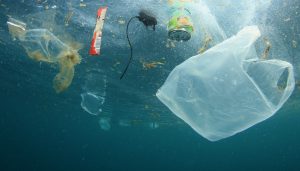In December 2019, the Canada Games Council (CGC) signed on to the UN’s Sports for Climate Action Framework and is now developing a new sustainability strategy. To better understand how climate change is impacting Canadian athletes, CGC reached out to two former Canada Games participants, pro snowboarder Craig McMorris and Olympic steeplechaser Geneviève Lalonde. From receding glaciers to offsetting carbon footprints, Craig and Geneviève share their firsthand experiences with sport and climate change. To learn more about Craig and Geneviève’s backgrounds follow this link.
CGC: Why is the climate action movement important to you?
Craig McMorris: The climate change movement is important to me because I spend my life outside – and always will – because my life is inherently connected to nature. I feel as though the least I can do is be a part of the climate action movement to help protect such an integral part of my life. Protecting the places, you love from climate change is a no-brainer, but we need to work together to achieve more than any of us can as individuals.
Genevieve Lalonde: It is important to me because I want everyone to have the same opportunities to be able to see the world that I do. The beauty of the northern lights and the ocean tides, the vastness of the old growth forests – these are experiences that only nature can produce. I think humans need to better appreciate the spaces where we live and understand the natural processes that allow us to see the beautiful sun rise every day.
CGC: Have you seen any impacts from climate change at your favourite spots?
Craig: A lot of people in the winter sport world are seeing the impacts of climate change in the places that we snowboard and ski. For example, Whistler Blackcomb recently removed the T-bar on Horstman Glacier due to years of dwindling snowpack. Seeing first-hand the glacier recession on Blackcomb mountain makes the impacts of warming temperatures very real.

Genevieve: Ocean landscapes are also seeing major changes. Local beaches are being closed because of pollution; increasing temperatures and sea level rise are challenging the trails along the seaside; and ocean acidity is playing a huge role in the degradation of marine life and habitats. When I can make my way down to the ocean these days, I often get a salty breeze combined with a whiff of petrol, or the smell of rotting garbage on the beach. It is really not as pleasant as it used to be. However, it reminds me that there is so much work for us to do to help our planet.
CGC: Your status as professional athletes has you travelling around the world – does the travel concern you in terms of contributing to climate change?
Craig: My first-hand experience with the negative effects of climate change does create concerns for me about the travel associated with my profession. However, I recognize that I wouldn’t be where I am today without the travel and exposure. As an ambassador of Protect our Winters, I make a point to use the platform I’ve garnered from snowboarding to try and educate and inform people on climate change and its impacts. Individuals have different options when it comes to contributing to climate action. I try to make up for the travel in other aspects of my life and through my public environmental activism.
Geneviève: As an athlete, demands are higher than ever for us to travel abroad to compete. Air transportation produces very high levels of CO2 and is a significant factor of global warming. Each time I step on a plane I recognize what I am doing to the planet and my heart sinks, because I know the impacts of my actions. It is conflicting to be so passionate about the environment and sport at the same time, when some days they work very well together and others they are at odds.
CGC: Geneviève, have you made any changes to your life or routines to help lessen your carbon footprint?

Geneviève: It has been a fun challenge to see what we can do as athletes to lessen our carbon footprint. When I am at home, it is easy. We shop locally, and support local businesses; we live simply without consuming too many goods; we find alternate ways of doing things that require less energy; and we try to mix up our meals so we get a balanced diet of locally sourced protein.
However, when you are abroad, there are fewer options. Often water quality is not what it is in Canada so we need to rely on outsourced water supplies. In some countries, to avoid digestive upsets, we need to import our food and bring or buy food preparation equipment. I do my best to travel with the essentials so I don’t need to purchase all of the necessities and leave them behind, and we bring reusable Tupperware with us everywhere we go.
CGC: Craig, can you tell us more about your role as an ambassador for Protect our Winters?
Craig: Protect our Winters (POW) was started by longtime big mountain snowboarder, Jeremy Jones, to unite professional athletes, outdoor enthusiasts, industry brands and the outdoor community to address climate change. Something I’m really proud of is the snowboarding community’s ability to stand up for positive action on climate change. POW Canada’s vision is for communities and outdoor playgrounds to be healthy, safe, and resilient to a changing climate. My role within this group is to help educate and promote climate action in Canada. I am in no way, shape, or form an expert on climate change, but POW plays a critical role in educating me and the outdoor community and driving climate action in Canada and elsewhere. For example, POW’s recent #NewPath campaign saw over 10,000 people writing to Canadian Ministers to promote a framework for a #NewPath towards a prosperous, green future.
CGC: What role can sport play in climate action and sustainable development?
Geneviève: Sport is, at its core, a celebration of diversity and excellence. People often look towards athletes, sport events as the pillars in creating gatherings. We need to develop sustainable systems that don’t just play a role in combating climate change but inherently allow us to better understand our natural systems. We need to educate others on how to pursue excellence in and celebrate sport, without sacrificing the environment.
CGC: The Canada Games Council is developing its long-term sustainability strategy with the goal of driving positive changes. Do you have any thoughts about what sports organizations should be striving to achieve?
Craig: High engagement with sport makes it a significant platform to encourage positive change across society. My thinking is that, if you have the audience and viewership that sports does, why not use it to make the world a better place? Organizations should consider how they can use their platform to inspire positive change, not only in the realm of climate change but also social justice, equality, and diversity, too.
Geneviève: I think the Canada Games Council, and the long-term sustainability strategy, illustrates that the Canada Games is not only thinking of hosting great events to support the development of sport, but how to create an event that builds a lasting legacy. An effective sustainability plan looks at the impacts of an event on the host community and how it can plant the seeds for a more ecological and resilient event in the future. I truly believe that there are ways for sports events to help develop communities and their environments for the better, and I think that is what sports organizations should be striving to achieve.
Read more about the Canada Games Council and the Sport for Climate Action Framework here.